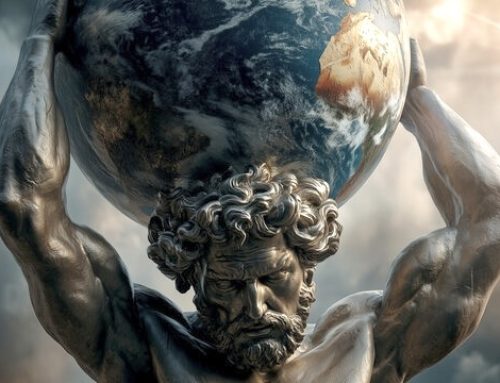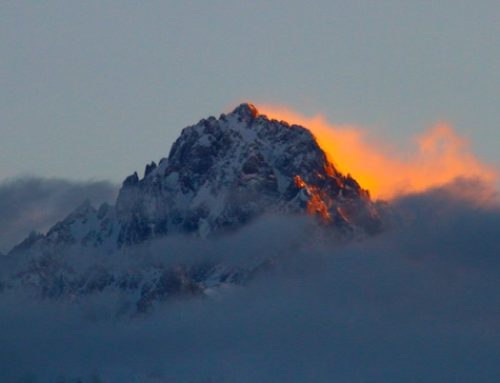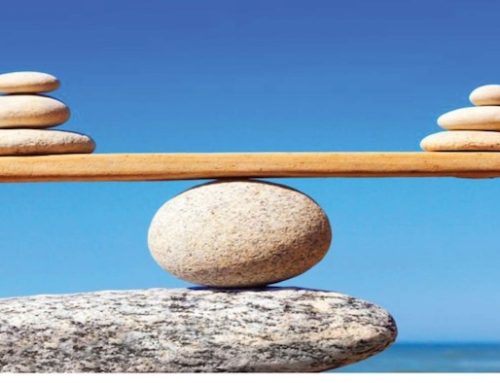November is a transitional month, a between month, a time of animated reflection as the energy of summer has been diluted by autumn, but hasn’t yet yielded to the solemnity of winter. It is a natural time to take stock and, as our American tradition of Thanksgiving holds: to express our gratitude for our many blessings. It allows just enough space in the fading light for contemplation before we wind ourselves up again for year-end holidays that, at least for me, have always oversold and underdelivered on the promise of joy, let alone peace.
As some of you know, or may have gathered from my writings, I have been immersed this year on a pilgrim’s search to reconcile my life in favor of a sense of transcendent equanimity I call sweet peace. I have always been a curious natural seeker of knowledge and meaning. Epistemology—the study of how we know what we know—is an arena of bottomless fascination for me. In recent years, this quest has been a source of great anxiety as I have watched our collective departure from a commitment to truth place our country and world in constant peril. This penchant for curiosity and knowledge when combined with an affinity for sports and recreation that began very early in my life (as being outdoors was much preferred to being stuck inside with three older sisters) means my mind and body have been maintained at a reasonable level of knowledge and fitness. However, as is the case with many people of my generation, I gave my heart, my spirit, and my soul, little attention.
Fortunately, my pursuit of knowledge did, at least tangentially, touch matters of metaphysics, spirituality, and religion with some frequency during my adult life. I was an early reader (thirty-plus years ago) of the late Thich Nhat Hahn, and have always enjoyed the arm wrestle between atheists and evangelicals. Although it never happened, I would have enjoyed seeing Christopher Hitchens debate the Reverend Billy Graham Jr. I expect Billy would have needed more than a prayer towel to wipe his brow. During my research for my dissertation that resulted in my book, Presidential Faith and Foreign Policy, I spent many months reading every text of the major world religions and took a very deep dive into American Christianities. During my life, identifying as agnostic gave me the comfort of honesty by responding to inquiries of my own disposition regarding deities by simply answering, “I don’t know.” The religious scholar, Mark Knoll, argued that as an agnostic I was uniquely qualified to examine presidents and their religious dispositions as I had no dog in the fight.
The time comes, however, when one must (or at least should) come to terms with one’s life and inevitable death. Notwithstanding what knowledge has to offer regarding the mechanics of this process, when contemplating death knowledge has little to offer. Empiricism hits a wall at the moment of our demise. Yet, death has been the dominant contemplation of humankind for centuries; not just of the mystery of what lies beyond, but for its impact on how we value life. As the common inquiry goes, if we did not know we will die, would we even value life? Stated more directly, if we knew we would live forever—a deathless existence—what meaning would our lives have? The after-death mystery coupled with how we cherish life has, of course, set us up with our most dynamic vulnerability: we will do anything asked for the promise of eternal life. This is a button that has been pushed over and over throughout the history of humankind by the leaders of many tribes, cults, religions, kingdoms and empires. It is humanity’s Achilles heel.
One of my early revelations in my own spiritual journey this year did, however, identify a workaround to the dilemma of facing an uncertain afterlife. Why not heaven now? Why not heaven during life? Why not heaven on earth? It turns out this—what I call sweet peace—is indeed possible. It isn’t easy and requires disciplined work, but one can get there. Some call it enlightenment, but that’s a little too woo-woo for me and, frankly, has been so overused in so many different contexts as to have had its meaning severely compromised. I describe sweet peace as removing every weight and tether from your being such that peace of mind, body, and spirit is experienced in the present. It is what others—like athletes and musicians and writers—describe as being “in the flow.” It is, in short, the ultimate experience of liberation; when every dimension of your life is completely aligned in a deep and unassailable sense of harmony. Akin to being swaddled in bliss.
A number of ancient philosophers pursued this same workaround. In my essay “Twelve Contemplations for a Better Tomorrow” (September 4, 2022), the third contemplation is called “Die to Live.” This is something the ancients practiced regularly, but in the modern era (perhaps because of our embrace of organized religion’s promise of everlasting life) we have suspended this exercise. After all, won’t clean living and/or large financial donations to our chosen churches secure our post-death transcendence? (Place that bet as you wish.) The purpose of the exercise is to clear the decks of dissonance in our lives to narrow, if not eliminate, the gaps between how we wish things to be and how they are. So, as suggested in my essay, one must dispense with and/or reconcile obligations, dependencies, and conflicts that all are sources of different types of dissonance. The other group of dissonance-makers are wants and desires. Recognizing that the entire commercial system in our modern world is designed to increase both wants and desires, this is a challenge, but is by no means insurmountable. It is accomplished by simply living in the present moment and accepting what is rather than what might be. To, as my favorite mantra (the three Rs) intones: relax and release to rise. As I suggested in the same essay, “The … aim is contentment, which is a core element of grace”; a state of pure grace being synonymous with sweet peace.
Of course, we don’t live in a static world. Dastardly dissonances come and go with high frequency. This is why we must find a rhythm of practices that support our desire for sweet peace. This is where the process of curation comes in. In your constellation of practices that involve different tools (principal among them meditation) you will, over time, land on elements that prove effective in producing that sense of harmony that literally resonates in a manner to shield your sweet peace from a world that seems determined to disrupt, if not destroy, it. This is what is meant by “doing the work.” There are many so-called spiritual teachers out there. And, as with your formal education, you will experience ones that work for you and ones that don’t. In my experience, it is a highly idiosyncratic process. Sometimes, just an irritating voice can eliminate a teacher, at others you will find more substantive points of attraction or dismissal. The point is (as with any regimen aimed at improving your life) to get started and stick with it.
Once you are on your path, you will find other tools to support your practice. One of my favorites are crystal bowls that are frequency-specific aimed at different chakras, or energy centers in the body. On a recent retreat, I even experienced a session of crystal bowl sound activation where bowls of different frequencies were placed on my body in coordinated vibration, or singing, to affect cell activation deep within the core of my body. Yup: woo-woo! But damn, it felt good. All music apps offer many versions of so-called “sound baths” (including crystal bowls) that I use to accompany my own meditation sessions.
I expect the biggest game-changer, however, that is slowly but surely coming on-line, is the application of psychedelics like psilocybin, ayahuasca, MDMA, LSD, and peyote. These substances are considered by many to be capable of supercharging the path to sweet peace, and have shown extraordinary efficacy in treating addiction and PTSD while also providing that proverbial magic carpet for terminally ill patients facing death. In effect, psychedelics interrupt neural pathways overriding our psyche that captains our ego. They allow us to transcend the self—to get out of our own way. A great deal of research is underway to refine their clinical application, and I was pleased to see my own state of Colorado has now removed the threat of criminal prosecution for their use. If you are looking for a primer on these developments, see Michael Pollan’s How to Change Your Mind.
One thing I remain unsure of that I will pose as a caveat, is whether those in the preparation and achievement phases of their lives, roughly birth to early 40s, will benefit from doing more than tending to their body and mind. I wonder if paying much attention to matters of the heart/ spirit/soul complex ought to be left to later life. I wonder if younger folks shouldn’t let their psyche/ego stay in the driver’s seat until they transition to the actualization, then transcendence, phases of their lives. I recognize this may simply be a personal bias of mine, but as I look back on my own life, being aware of and curious about these mindful practices (mostly through reading) without diving in appears to have served me well. It gave me just enough familiarity and curiosity to dive in today. However, I am aware many get on the path at a young age and flourish as well. Perhaps my family/business/academic life would have benefited, but I am not sure where I would have found the time. So, insert an I-dunno-shrug emoji here! It may also be that I was just too pre-occupied and immature to succeed in a mindfulness practice at a younger age. (I suspect Socrates would have shared this concern.)
Winter is on the doorstep. Notwithstanding the many holiday obligations we enjoy/endure this time of year, now is a good time for self-reflection and self-care. Be patient with, and attentive to, others, but be selfish too. Our country and world have many challenges, but I am a big believer in the power of one, which is to say making the world a better place starts with making a better, more peaceful, you. If your practice only yields glimpses of sweet peace, as mine has, trust me when I say it is well worth the effort. Tranquility is its own reward.
Have a wonderful Thanksgiving.






